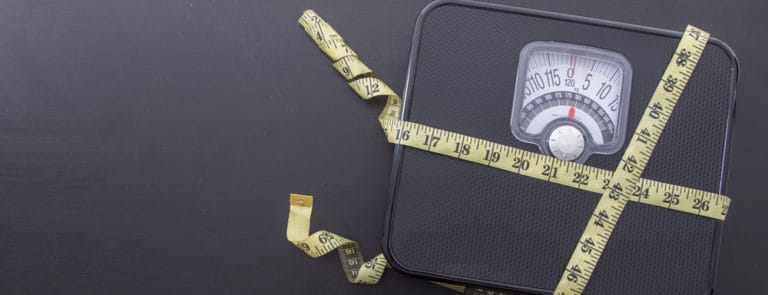20% off £30
Code:QUICK
5 possible reasons for your unexplained weight loss

Losing weight without trying can be alarming. These 5 possible reasons could help shed some light to the cuase of your weight loss.
Experiencing weight loss without trying to drop weight, especially if you’ve been a relatively stable weight throughout your life, can be a worry.
Regardless of what your weight was before, dropping pounds for no apparent reason should be looked into. Luckily, causes of weight loss are usually relatively straightforward.
What causes weight loss?
Losing weight is almost always a case of calories in versus calories out. If you start taking in fewer calories, you’ll create a calorie deficit in your body. Then, your body will burn into stored energy and you’ll lose weight as a result. You can do this by eating fewer calories than you burn - or expending more energy than you eat. But a calorie deficit isn’t the full explanation for unexplained weight loss. What if you’re still eating the same way as ever – and your activity levels haven’t changed much either?-
Stress
-
A major life change…
-
…or minor ones
-
Going vegan
-
Certain medical conditions
- Overactive thyroid – also known as hyperthyroidism. This is when the thyroid gland produces too many hormones. With an overactive thyroid, your metabolism ramps up and you burn more calories while at rest, leading to weight loss.5
- Inflammatory bowel disease (IBD) – including Crohn’s disease and ulcerative colitis have weight loss as a side effect. This could be down to a number of factors – poor appetite, aversion to foods, poor absorption of nutrients from food and nutrients lost through diarrhoea or intestinal bleeding.6
What can I do about unexplained weight loss?
- Reflect – you know yourself best. However, even you can miss things. Track your food and drink for a few days (some weekdays and at least one weekend day). Make a note of all your activity, not just formal exercise. Think about how well you are sleeping. Have your stress levels changed? Is anything in your everyday routine different?
- Eat more – perhaps the most common reasons for weight loss is a calorie imbalance. You could be eating less than your body needs without realising it. If you have a small appetite or if your daily routine is making it tricky to eat enough, that could be the culprit. Keep a food diary for a few days to see if you’re under eating.
- Digestive help – if your digestive system isn’t working properly, you won’t get all the nutrition from the food you eat. If you suspect this is the case, try a probiotic, prebiotic, or digestive enzyme to help your system cope.
- Check your meds – certain medications can upset your stomach, causing diarrhoea or indigestion and might be a cause of weight loss. These include non-steroidal anti-inflammatory drugs (NSAIDS), some tranquilisers, iron pills, cough medicines, antibiotics or blood pressure medication. Always check with your GP if prescribed medication is giving you side-effects.7




.png)










